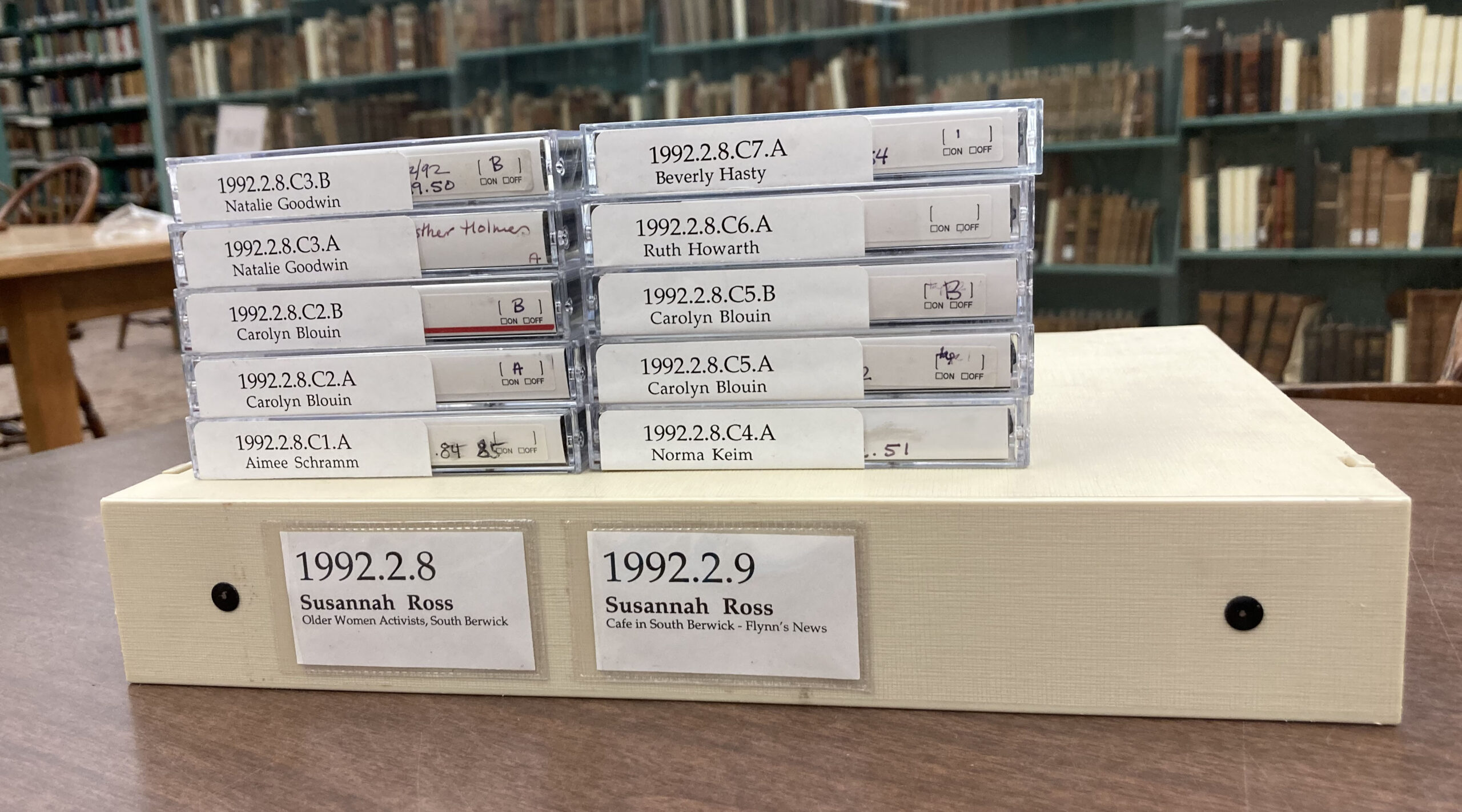
Internship Project Adds Audio Files To Maine Women’s History Collection
Digital Curation graduate student Anna Aridome focused on a series of interviews conducted by Jenny Meagher in 1992 about women activists in South Berwick, Maine for the Salt Center for Documentary Studies. This new section of DigitalCommons@UMaine is available in the Interviews section of the Maine Women’s History Collection.
Rough audio transcripts of these oral history interviews were computer-generated but still needed considerable editing. Anna polished and posted multiple files, providing access to more than nine hours of audio and 300 pages of transcription. The interviews explore the lives of the women and cover topics such as childhood, education, work, marriage, family, community, personal and local history, feminism, activism, civil rights, politics, and protest.
When asked about some of the challenging aspects of the project, Anna explains, “I found that regardless of which machine-generated rough transcription you use there will still be mistakes due to the difficulty of accurately comprehending regional dialects and accents. Also, it was not uncommon for the rough transcription to come up with something that was the exact opposite of what the person said. For example, ‘is’ is often mistaken for ‘isn’t’ and vice versa.”
Throughout the process, in addition to making corrections based on listening to the audio, Anna searched Maine history sites, obituaries, the Salt Story Archive, and other sites to accurately identify words, names, definitions, and spellings.
Here are a few of her favorite passages from these recordings:
Ruth Howarth on the meaning of activism: I think […] to be an activist you have to be doing something that other people are criticizing. You know, to stand for something that you know maybe the majority do not believe, and I think that takes a lot of courage. That’s what I call being an activist—being able to get out and do that in such a way that you can inspire others that maybe feel that way, but are not able to express it in the same way and […] enable them to do it.
Beverly Hasty on her husband’s grandmother, Ethel Hasty, a schoolteacher in South Berwick who was the primary breadwinner for her family in the early 1900s: Grammy would say on cold days […] they’d have the wood stove and she’d bring a big kettle and everybody would bring in such and such, maybe to make a soup or a chowder or whatever. So, she’d end up also being the cafeteria lady, being the cook for the day and a person would be assigned to make sure they had water. […] But she’d probably go there and start the wood stove in the morning also. So, […] being a teacher covered a lot of things.
Aimee Schramm on civic engagement in South Berwick: I do a lot of things independently in town. Sort of guiding quietly. I like to be the power behind the throne. But […] I don’t want publicity. I don’t want recognition. I want the joy of doing it. And I’m making it a better country. I wish everybody did it.
These audio files and transcripts are a part of a broader project to digitize materials from Fogler Library’s Special Collections on the topic of Maine Women’s History. More than 10,000 pages on this topic are now available through DigitalCommons@UMaine.
